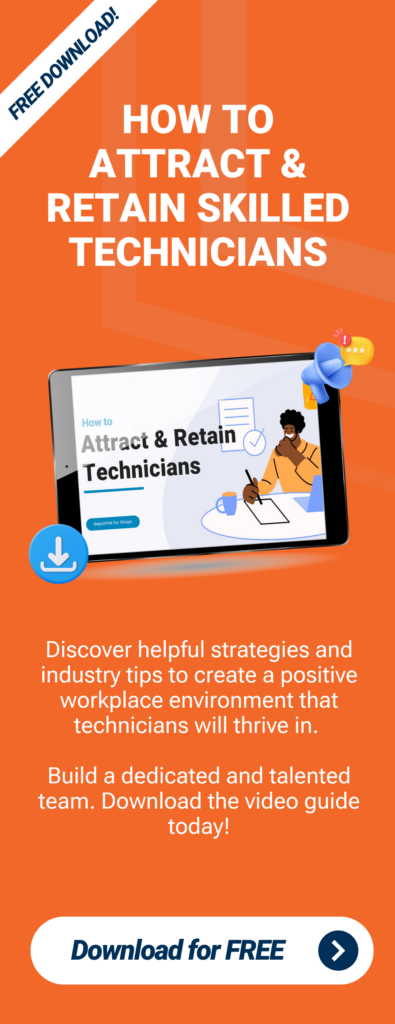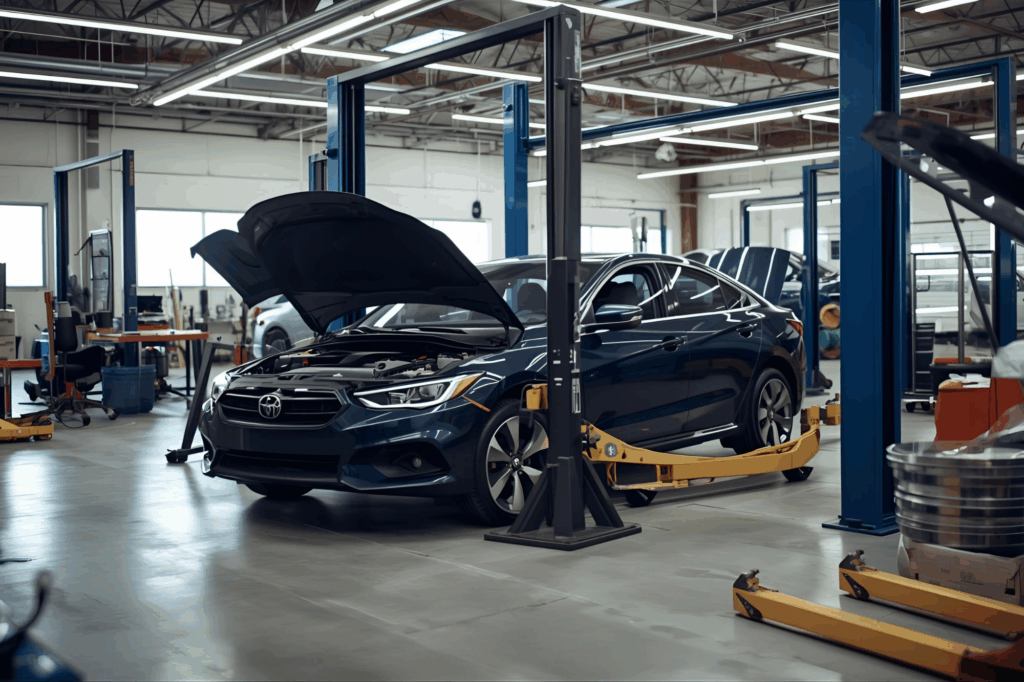Hiring the right automotive mechanic is crucial for your repair shop’s success. A skilled mechanic ensures efficient operations, high-quality repairs, and satisfied customers. Finding the best talent requires asking the right questions during interviews. This guide provides 12 key automotive mechanic interview questions, along with sample answers and action items to help you evaluate candidates effectively.
Hiring a great mechanic involves more than just checking their technical skills. It’s about understanding their experience, certifications, and approach to new technology. It’s also important to see how they handle challenges, safety, and customer service. This guide will help you dig deep into these areas.
By asking the right questions, you can identify the best candidates who will contribute to your shop’s success. It’s not just about fixing cars; it’s about providing excellent service and maintaining a high standard of work. A good mechanic will help your shop run smoothly, keep customers happy, and reduce waiting times.
Setting Up the Interview
Creating the right setting for the interview is essential for getting the best out of your candidates. Begin by ensuring the interview takes place in a quiet, private area free from interruptions. This helps both you and the candidate focus on the conversation. A professional, tidy environment also reflects positively on your shop and shows that you value the hiring process.
Start the interview with a friendly introduction and a brief overview of the interview process. Explain that you’ll be asking a mix of questions about their experience, skills, and how they handle certain situations. This helps set the candidate at ease and prepares them for what to expect.
It’s a good idea to have a copy of the candidate’s resume in front of you. This allows you to reference their work history and ask specific questions about their past roles. Take notes during the interview to help you remember key points and compare candidates later.
Having a hands-on component can also be beneficial. If feasible, include a practical test where the candidate demonstrates their skills. This might involve diagnosing a common issue or explaining how they would approach a specific repair. Practical tests give you insight into their technical abilities and how they perform under real-world conditions.
During the interview, observe the candidate’s body language and communication style. Are they confident and clear in their responses? Do they seem genuinely interested in the role and your shop? These non-verbal cues can help you see if they are right for the job.
Finally, leave time at the end for the candidate to ask questions. This shows you value their input and gives them a chance to learn more about your shop. It’s also an opportunity for you to gauge their enthusiasm and interest in the position.
By setting up a well-organized and professional interview environment, you create the best conditions to evaluate your candidates better. This approach helps you make informed hiring decisions that will benefit your shop in the long run.
Once you have the interview environment and process set, you can focus on the specific questions to ask.
1. Can you tell me about your experience as an automotive mechanic?
Answer: Candidates should detail their work history. They should also mention the types of vehicles they’ve worked on and specific tasks they’ve performed. Varied experience, including routine maintenance and complex repairs, is valuable.
Action Item: Ask the candidate to provide examples of specific vehicles and repair jobs they have handled. Look for diversity in their experience to ensure they can handle a range of issues.
2. What certifications do you hold?
Answer: Important certifications such as ASE (Automotive Service Excellence). Candidates should list their certifications and explain their importance. Special training, like hybrid vehicle maintenance, is a plus.
Action Item: Verify the candidate’s certifications and ask how they stay current with their certifications. Ensure they have the qualifications necessary for your shop’s needs, particularly for complex diagnostic and repair jobs.
3. How do you stay updated with the latest automotive technology and industry trends?
Answer: A good mechanic keeps learning and growing throughout their career. They should mention attending workshops, reading industry publications, and following online forums. Continuous education is key.
Action Item: Ask for specific examples of recent training or educational activities. Evaluate their commitment to staying current in the field. Additionally, seek their knowledge of new tools and technologies used in the repair shop.
4. Describe a challenging repair job you’ve completed. How did you handle it?
Answer: Candidates should share a specific example, explain the problem, their diagnostic steps, and how they fixed it. This shows their problem-solving skills and ability to handle pressure.
Action Item: Encourage candidates to walk you through their thought process during the repair. Check their problem-solving skills and how they stay calm under pressure, especially on busy days with long waiting times.
5. How do you ensure safety and quality in your work?
Answer: Look for answers that highlight safety protocols and quality checks. Candidates should mention using quality parts and staying informed about the latest safety standards.
Action Item: Ask about specific safety procedures they follow and how they ensure the quality of their repairs. Evaluate their commitment to safety and quality, especially when dealing with critical systems like the engine lubrication system.
6. Can you explain your diagnostic process when a vehicle has an unknown issue?
Answer: A step-by-step approach is important. Candidates should outline their diagnostic process, including using diagnostic tools, consulting manuals, and performing test drives.
Action Item: Request a detailed explanation of their diagnostic process. Look for a methodical approach and familiarity with diagnostic tools and resources. Verify their experience with performing test drives to diagnose issues.
7. How do you prioritize multiple repair jobs?
Answer: Time management is crucial in a busy shop. Candidates should discuss how they assess job urgency, estimate repair times, and communicate with customers. Setting realistic expectations is key.
Action Item: Ask for examples of how they have managed multiple tasks in the past. Evaluate their ability to prioritize and manage time effectively, particularly during busy days with high waiting times.
8. On a typical day, how do you handle customer interactions, especially when explaining repairs?
Answer: Good communication skills are essential. Candidates should show they can explain technical issues in simple terms. They should also discuss repair options and costs clearly and honestly.
Action Item: Role-play a scenario where they have to explain a complex repair to a customer. Assess their communication skills and ability to simplify technical information, which is crucial for good customer service.
9. What do you do when you encounter a repair that you are unfamiliar with?
Answer: Resourcefulness is important. Look for answers that mention consulting with colleagues, researching the issue, or referring to manuals and online resources.
Action Item: Ask for an example of a time they faced an unfamiliar repair. Evaluate their resourcefulness and willingness to seek help or information when needed. Check if they have strategies to quickly find solutions during busy days.
10. How do you handle warranty repairs and ensure compliance with manufacturer guidelines?
Answer: Candidates should explain their understanding of warranty processes and the importance of following manufacturer guidelines to maintain vehicle warranties.
Action Item: Discuss their experience with warranty repairs and ask how they ensure compliance with guidelines. Verify their knowledge of warranty processes and their attention to detail in following manufacturer instructions.
11. Describe a time when you improved shop efficiency or reduced costs.
Answer: Examples might include implementing new tools or procedures, suggesting bulk purchasing to save costs, or improving diagnostic accuracy to reduce labor time.
Action Item: Ask for specific examples and details of how they achieved improvements. Assess their ability to contribute to shop efficiency and cost reduction. Check if they have suggestions for reducing waiting times and improving workflow.
11. Describe a time when you improved shop efficiency or reduced costs.
Answer: Examples might include implementing new tools or procedures, suggesting bulk purchasing to save costs, or improving diagnostic accuracy to reduce labor time.
Action Item: Ask for specific examples and details of how they achieved improvements. Assess their ability to contribute to shop efficiency and cost reduction. Check if they have suggestions for reducing waiting times and improving workflow.
12. Why do you want to work at our shop?
Answer: Look for their genuine interest in your shop. Candidates should mention specific reasons, such as the shop’s reputation or growth opportunities. Alignment with their career goals is also important.
Action Item: Ask what they know about your shop and why they think it’s a good fit for them. Evaluate their enthusiasm and alignment with your shop’s values and goals. Look for a passion for the automotive industry and a desire to contribute to your team.
Conclusion
Finding the right automotive mechanic requires careful evaluation. Asking the right automotive mechanic interview questions is essential to assess technical skills, experience, and personality traits. Use these 12 auto mechanic interview questions to guide your interviews and ensure you hire the best candidates.
In addition to asking these technical questions, observe the candidate’s demeanor and communication style. Look for enthusiasm, professionalism, and a genuine interest in the role. Conducting thorough interviews helps ensure that your shop hires mechanics who are not only skilled but also a good fit for your team.
By using these questions and action items, you can better gauge the qualifications and fit of potential mechanics. This approach helps maintain high service standards and customer satisfaction in your shop. Hiring the right mechanics is a crucial step in building a successful automotive repair business. With the right team, you can ensure efficient operations, reduced waiting times, and exceptional customer service.




